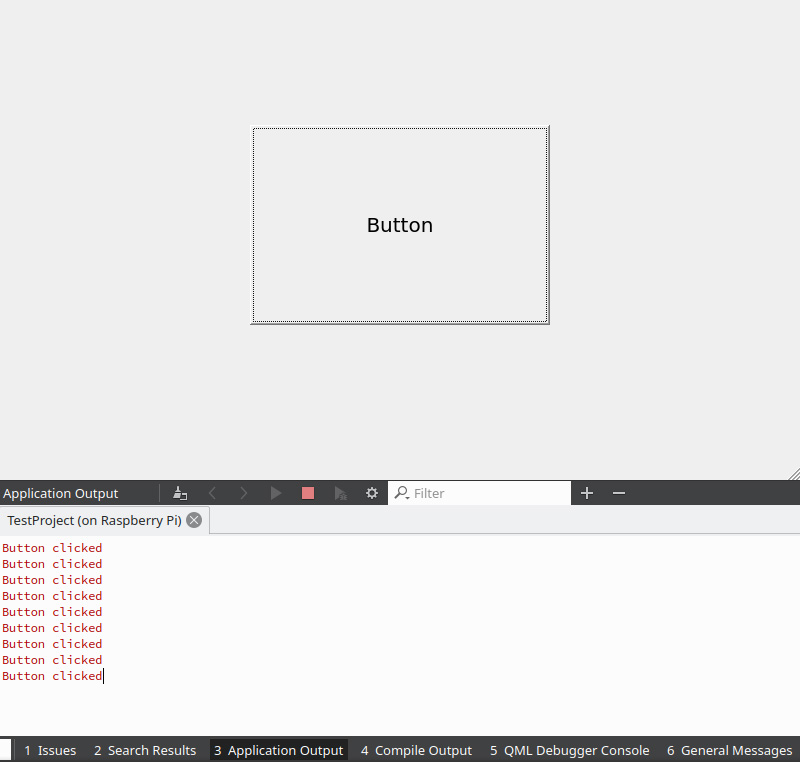

To move code from PC to Pi and back again I use git. Better still use those stubs to simulate the GPIO and such, this makes a lot of testing possible on the PC itself and one can make repeatable tests, which is a good thing. That's OK just create some stub classes/functions to fill in for those. Of course one cannot use Pi GPIO and other Pi specific features whilst developing on the PC. I don't bother using qtcreator on the Pi, any editor will do, and qmake/make.ĥ) For further development, go back to the PC and work on it in the luxury of its performance and facilities.
#Qt creator for raspberry pi windows
I use Linux but I'm sure it goes the same on Windows and Mac.Ģ) Of course one can build, run, test your application on the PC as usual.ģ) When the application is in good shape, or a good chunk of it, move the source code to a Pi and rebuild it there using qmake and makeĤ) Do some testing on the Pi. My approach to creating Qt application for the Pi has been as follows:ġ) Write the application on a PC using qtcreator. Thank you all and I look forward to reviewing your feedback. Are there any ways that I can bypass the OS (or a portion of the OS) such that as soon as the Pi 3 boots up, the Qt application runs? I do not want the user of my application need to login into the OS before my app starts. I have minor experience working with SOM chips.Ģa) With the Pi 3 running Linux, would I be programming with the Linux Kernel itself instead of working directly with the registers?Ģb)If I do need to work with the registers directly, I can I reference them in my source code?ģ) Bonus Question: I would like my application to be the only application running on the Pi 3. Do they apply today or are updated tutorials available?Ģ) How can I program the GPIO pins and peripherals of the PI 3 in Qt creator? I come from the microcontroller land and usually, I would reference the registers directly. 5acf2a078cġc) Again, some of these tutorials are more then 2 years old. I will be referencing these tutorials when building my application on the. In 2019, does this still apply?ġb) Is it still best to develop on a desktop and then export the project as a cross compiled application? Or does Qt5 exist for the Pi? I could develop on the Pi itself but compiling time would be longer and I am limited to Qt4.ġa)That last statement was from websites dated 2+ years ago. I do have some questions regarding developing on the Raspberry Pi 3 that I am hoping the community can answerġ) Looking at a number of tutorials, it seems that it is best to build my application on a Desktop computer and then cross-compile the application for Raspberry Pi. The program will also need to interface to some of the GPIO pins and peripherals and interface to a touch screen device. However, I am looking to work on a project where I need to create a GUI program that runs on the Raspberry pi 3.

I have experience using Linux (specifically Ubuntu), C/C++, and Qt.


 0 kommentar(er)
0 kommentar(er)
